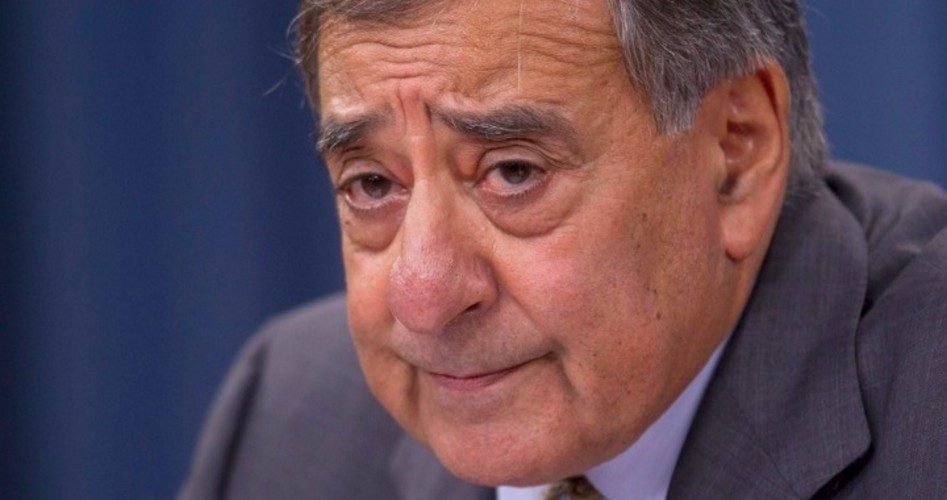
The Obama administration’s efforts to plug the leaks in government continue as Secretary of Defense Leon Panetta on Thursday ordered Pentagon officials to monitor the mediafor any hint of unauthorized disclosures of classified or other sensitive government information.
Just hours after emerging from a private meeting with the House of Representatives Armed Services Committee reportedly dealing with the recent alleged leaks of government secrets, Panetta issued the directive.
Representative Buck McKeon (R-Calif.) is the chairman of the committee and informed reporters gathered at a news conference that he did not believe Panetta’s department was responsible for the leaks and that he was confident that the White House was working hard to get a handle on the situation.
“Both the chairman and I were very convinced that Secretary Panetta and all of the folks at the Pentagon are taking it seriously, are trying to mitigate the damages and prevent it in the future,” said Adam Smith (D-Wash.), the committee’s ranking Democrat.
Regarding the closed-door meeting, Reuters reported:
Panetta, Army General Martin Dempsey, the top uniformed military officer, and chief Pentagon lawyer Jeh Johnson appeared before the committee to answer questions. McKeon said they agreed the recent leaks had caused damage, but did not elaborate.
Pentagon Press Secretary George Little reportedly said Thursday all those who participated in the meeting were “of one mind” about the urgent need to control the dissemination of sensitive information.
“The unauthorized disclosure of classified information is truly disturbing,” he said. “It’s of concern to the secretary, and I think members on the Hill express similar concern. And the secretary is clearly prepared to try to address the problem inside the department.”
McKeon later commented that he believes that the federal government was “actually doing pretty good” in managing its secrets, especially considering the fact that currently there are roughly 4 million people with some level of classified security clearance.
Although he’s getting the most press since the issuing of his edict, Secretary Panetta isn’t the only Obama administration official to heed the boss’s call to clamp down on the communications.
Recently, Attorney General Eric Holder appointed two U.S. Attorneys to investigate the alleged “leaks” of classified information many suspect originated in the White House, James Clapper the Director of National Intelligence, piled on by announcing that all intelligence agents and officials may be subjected to polygraph testing if they are suspected of leaking information to the media.
The new guidelines are designed to detect and discourage leaks from occurring in the intelligence community. In a statement, Clapper outlined the goal of the new policy:
These efforts will reinforce our professional values by sending a strong message that intelligence personnel always have, and always will, hold ourselves to the highest standard of professionalism. It is my sincere hope that others across the government will follow our lead. It is the right thing to do on behalf of the American people and in the interest of our national security.
Observers believe that the new protections come as a result of the recent “leaks” concerning American efforts to disrupt Iran’s nuclear weapons development program. The information allegedly “leaked” was first published in the New York Times and provided specific descriptions of several operations initiated by President Obama in the “war on terror.” Among the revelations included in the New York Times piece were details of drone strikes and the deployment of the Stuxnet virus, the computer attack aimed at Iran’s nuclear infrastructure.
Given the president’s obvious pride in his remote control killing program and the apparent success of the cyber-attack on Iran, there is rampant speculation that the information that was given to the New York Times was less a leak and more an example of the White House blowing its own horn.
Some stories related to the leaks report that it would have been impossible for information so classified and so detailed to have been obtained without either the knowledge or the cooperation of the Obama administration.
While the president has designated himself (or his underlings) the decider in cases of suspected unauthorized disclosures of sensitive information by members of his own executive branch, he has also set himself up as the prosecutor-in-chief of all those who deign to disclose information that could trip him up in his quest to create the world’s largest and most efficient surveillance state.
As the New York Times reports, “The Obama Administration has already prosecuted six leak-related cases.”
Of all other developments, the most frightening (some might even say “chilling”) aspect of the aecretary’s order is that the media be kept under close surveillance. As the memo itself explains:
Current regulations mandate that every component within the department report unauthorized disclosures to a security officer for a preliminary review. The matter is also sent to the Under Secretary of Defense for Intelligence, who in coordination with the General Counsel, may refer matters to the Department of Justice for potential prosecution. This “bottom up” system requires that individuals report potential violations up the chain of command.
Further on in the directive, Panetta “reiterated guidance issued by Secretary Gates that the Assistant Secretary for Public Affairs is the ‘sole release authority for all DoD information to news media in Washington.’ ”
Despite the draconian tone of the document, it is unlikely that the tandem of surveillance and “sole release authority” will choke off the flow of information from government to press, especially in light of compelling evidence that the White House itself is the source of the most “damaging” leaks.
In an apparent effort to strike a proactive pose, Secretary Panetta’s letter crows about his department’s plans to perceive and prevent leaks. The memo chronicles the following programs:
• A new “top down” approach to improve reporting leaks of classified information. The Undersecretary of Defense for Intelligence, in consultation with the Assistant Secretary of Defense for Public Affairs, will monitor all major, national media reporting for unauthorized disclosures of defense department classified information. The Undersecretary of Defense for Intelligence will ensure that the appropriate component of the department has been tasked with investigating leaks and that the required legal referrals to the Department of Justice and Congressional notifications are made.
• Improved personnel training on how to handle and protect classified information.
• The department published the Information Security Program Manual which contains clearer instructions as to what constitutes an unauthorized disclosure, reporting requirements, the conduct of preliminary inquiries and other investigations, as well as roles and responsibilities across the department.
• The department has put into effect for the first time an online reporting system for significant security incidents for use across the department.
• Lockdown of removable storage device use on the Defense Secure Network (SIPRNET).
• SIPRNET is the government network allegedly accessed by Army Private Bradley Manning to obtain damning evidence of gross misdeeds by the American military that was eventually sent to Wikileaks.
• The department issued a cyber identity credential (Public Key Infrastructure certificate) to every person operating on the department unclassified network.
• Improving the auditing of information accesses so as to spot anomalous behavior.
• Stepping up internal oversight and assessment programs.
“The department is continuously improving its security posture and overall capability to prevent unauthorized disclosures,” the Pentagon declared in a statement accompanying the publication of the new media monitoring instructions.
In light of these efforts to keep the press in line, all Americans should be concerned that the president is consolidating within the Executive Branch the power to decide which leaks will remain open and which will be closed. This usurpation hides the president and the entire federal government behind a one-way mirror that allows the government to keep members of the media and other citizens under close surveillance while keeping its own actions shrouded in the shadows.
Photo of Secretary of Defense Leon Panetta



